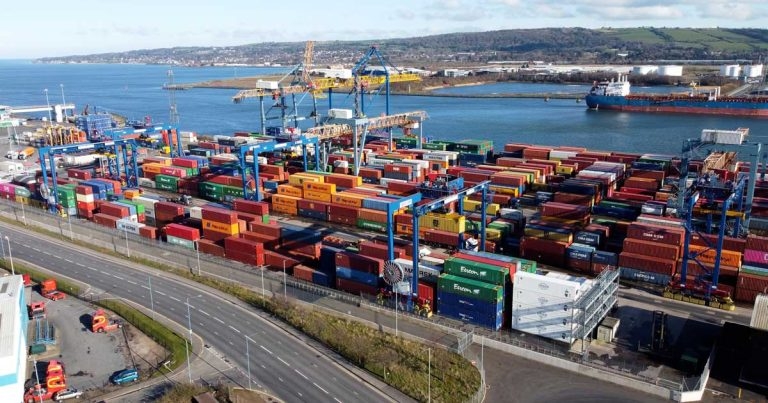20 Jun 2025
The UK Government has said “the vast majority” will be able to get the products they need once current rules expire, but an industry group says talks on a permanent deal must continue.

Belfast's harbour and docks. Image: © peter / Adobe Stock
The UK Government has outlined new measures it says will ensure continuing veterinary medicine supplies to Northern Ireland once current regulations expire.
Officials claim the number of products at risk of having their supplies halted and causing significant disruption as a result is “extremely low”.
But the BVA has warned greater detail is still needed to determine how effective the plans will be, while industry leaders have renewed their calls for a more comprehensive deal.
Long-standing concerns about what might replace the post-Brexit grace measures that expire at the end of this year re-emerged after no update was forthcoming from last month’s EU-UK summit.
The new Cabinet Office paper released yesterday (19 June) said supplies to Northern Ireland would have to comply with rules set out in the Windsor Framework agreed by the previous Conservative administration from 1 January 2026.
Based on latest analysis, between 10% and 15% of products that are licensed now were expected to be discontinued.
But out of around 3,000 such products, officials estimate there are fewer than 20 that are both at risk of being discontinued and likely to cause significant disruption. Most of the others are either not supplied or said to have available alternatives.
The document acknowledged there would still be concerns, but stressed: “In the vast majority of cases, we therefore expect vets, farmers and pet owners to continue to have access to the medicines they need.”
The department proposes a new “health situation” scheme, which would allow the use of alternative products from outside Northern Ireland on animal or public health grounds, and an “internal market” system that would enable vets to use products not otherwise authorised or available in Northern Ireland in a process it said would build on the existing veterinary cascade.
Officials say their plans would comply with EU law, while products available in Northern Ireland before the end of 2025 can also remain on the market after that until their individual expiry dates.
The department hopes that will prevent both a cliff edge in supplies and any harm to both animal welfare and food security.
BVA president Elizabeth Mullineaux said the document was a “positive development”, but pledged to keep up the pressure on ministers over the coming months.
She said: “While the remedies provide some reassurances, the detail of how the schemes work for vets in Northern Ireland will be critical to understanding how effective they are in reality.”
NOAH chief executive Dawn Howard described the document as “an important milestone”, but called for further negotiations between London and Brussels.
She said: “We reiterate that the most effective and enduring solution remains a comprehensive UK–EU veterinary medicines agreement.
“Such an agreement would provide clarity and confidence to manufacturers and distributors, helping to ensure continued supply and investment in the sector.
“Time is of the essence. NOAH stands ready to work with the Government and the EU to help make a veterinary medicines agreement a reality. The health and welfare of animals, and the resilience of our agri-food system, depend on it.”